Screenwriting can be hard in the beginning if you don’t have the proper resources to learn from. The first place people turn to is the internet. The internet typically redirects people to books. But how do you know if these books are the books you should be reading? In this post I’ll break down the 10 screenwriting books that beginners should read.
1. The Writer’s Journey: Mythic Structure For Writers
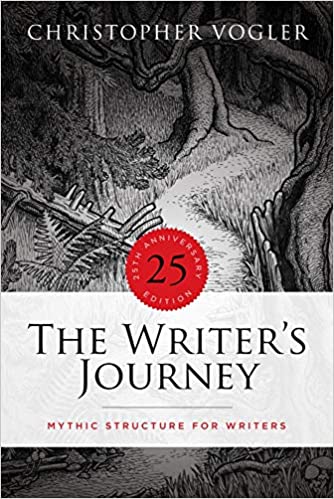
To be honest, this book is more about being a great writer than it is screenwriting. The Writer’s Journey takes Joseph Campbells famous Hero’s Journey and contextualizes it for writers. This book teaches the deep origins of storytelling and the structure that’s carried them from campfire to screen. Widely considered a classic, this book is a must read for anyone writing a hero based story.
2. The Idea: The Seven Elements Of A Viable Story For Screen, Stage and Fiction
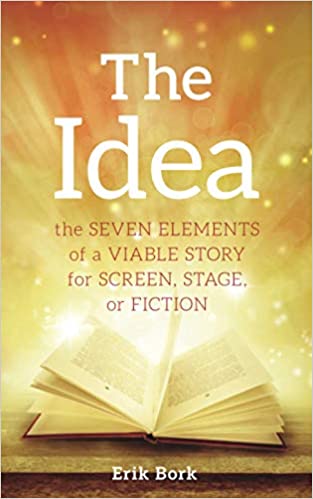
Erik Bork is a multiple time Emmy and golden globe winning writer and producer. He takes a different approach to the art of screenwriting. Bork chooses not to focus on scenes, structure and navigating the business. Instead, he believes the most important part of the process happens before any of that comes into play.
Bork’s time and experience as a screenwriting instructor has lead him to believe that it’s all about selecting that initial idea. An interesting, well thought out idea is what will convince Hollywood gatekeepers to read your script. Of course, it needs to be well written to get them to read past page ten, but it’s all about that great idea first.
3. The Art Of Dramatic Writing
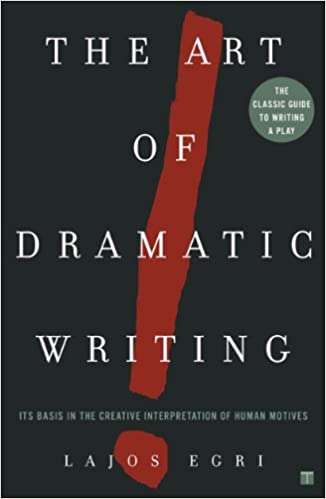
This book will set the foundation for you understanding the nature of drama. Egri breaks down the process of drama with underpinnings of story. Keep in mind, this is not a screenwriting book and it won’t teach you the finer points of how to craft the next great story. However, once you’ve read the contents of this book with examples from the great playwrights, you’ll have a better grasp of what drama is. You’ll learn how to progress a story between all the shots and set pieces. Knowing the interrelationships of character, plot and conflict will always keep your story moving forward.
4. Screenplay: The Foundations of Screenwriting
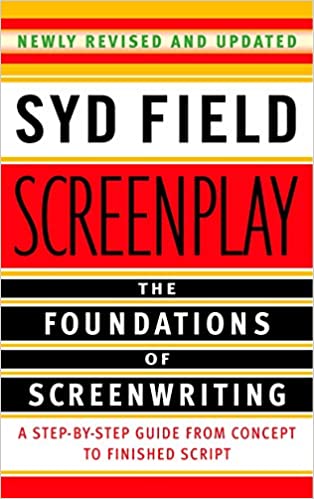
This is one of the oldest and yet, more practical approaches to screenplay theory and structure. The book delivers the meat and potatoes about the tenements of writing and laid the foundation for every book that came after it. Field knows his stuff. He’s able to show you how Jaws and Raiders Of The Lost Ark and Chinatown all operate off the same template. He breaks the template down so you understand how to write a three act Hollywood movie.
When you read this screenwriting book for beginners, whenever you watch a movie, you’ll know what act you’re inside of and you’ll anticipate how the writer will twist the story for the next act. Will it spoil the joy of watching movies? Not really. A great movie can still give you a thrill ride, but with the knowledge taught by Field, you’ll understand what’s underneath the hood of your favorite movies and how to extract it to write your own screenplays.
5. Save The Cat
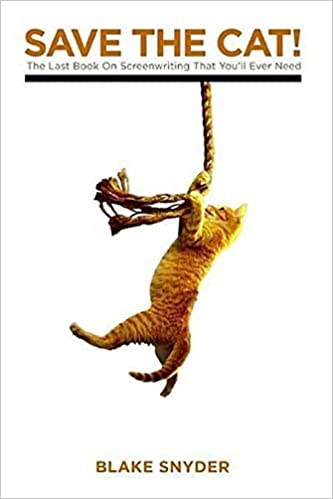
So now you understand the underpinnings of drama and you understand the basic structure of Hollywood movies. Why would you want to read Save The Cat? Snyder has sold several multi-million dollar high concept screenplays in Hollywood. This book shares what he knows about how to craft a sellable screenplay.
The philosophy in this book is based on scenes where we meet a hero and the hero does something that defines who they are and makes the audience invested in them. While there is no one formula to a successful screenplay, Save The Cat gives a great overview of potential beats that could be explored throughout the screenplay. Save the Cat breaks down structure into key plot points that can help beginners see simple story formats.
6. Story: Style, Structure, Substance, and the Principles of Screenwriting

My list of 10 screenwriting books that beginners should read wouldn’t be complete without this one. Robert McKee is an absolute God of the craft. His workshops have earned him international acclaim. He knows how to intimately inspire new voices, refine current works in progress, and put stale screenwriting careers back in the game. McKee’s book takes you step by step through his principles of screenwriting. He offers an intense learning experience, and you’ll be able to get more than just a few tips and tricks to help your screenplays. His book does a great job tracking the origins of story.
7. The Screenwriter’s Bible
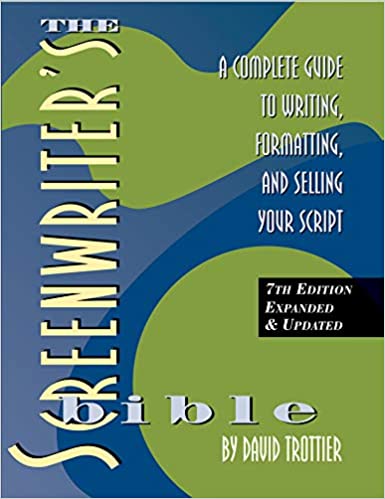
In twenty years, this book has sold thousands of copies. New writers can truly benefit from reading this book. If you’ve never seen a screenplay before, this is a great place to start. The Screenwriter’s Bible will alleviate your structure and format concerns. This book is a wealth of knowledge and practical information like sample query letters, worksheets, checklists, and sample scenes.
8. The Nutshell Technique

Callum Greene, a famous Hollywood producer said The Nutshell Technique cracks the code on why we love the movies that we love; it guides you to organically write the story you want to tell. Jill Chamberlain has worked in the industry long enough to realize that most newbie writers don’t know how to tell a story.
In order to fix that, she created the Nutshell Technique, a method where writers identify eight dynamic, interconnected elements that are required to tell a story. There are diagrams and examples of some classic and modern films including Casablanca, Pulp Fiction, Little Miss Sunshine, Juno and more. This book is so good, it’s even on the syllabus at several universities.
9. Adventures In The Screen Trade
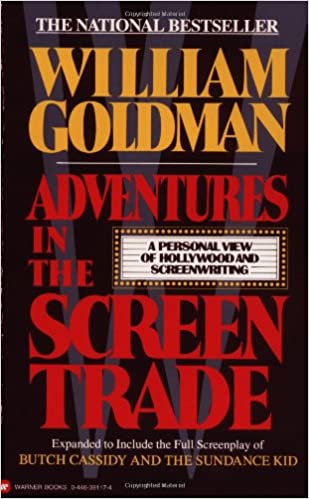
One of my favorite quotes is from William Goldman, the writer of Butch Cassidy and The Sundance Kid, All The President’s Men, and The Princess Bride. He said, “The single most important fact, perhaps, of the entire movie industry: NOBODY KNOWS ANYTHING. Not one person knows for a certainty what’s going to work.” With that said, no one knew the screenwriter’s Hollywood better than William Goldman.
He shows how films get produced and what element to include in your screenplay to make it good. This book offers a personal view of not just the screenwriting trade but working in Hollywood, so some anecdotes might be dated, but it’s an engaging read that will expand your perspective.
10. The Anatomy Of Story: 22 Steps To Becoming a Master Storyteller
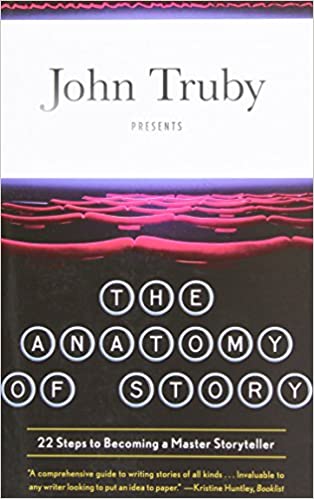
Truby’s known for his compelling screenplays and a few of Hollywood’s more successful films, including Sleepless in Seattle, Scream and Shrek. The Anatomy of Story pulls from philosophy and mythology, while giving new techniques and anecdotes that are very insightful. He has a unique approach to powerful storytelling. If you’re looking for ways on how to make your characters grow, while writing surprising plots, then this is the book for you. It’s imperative to read for all writers, including screenwriters, novelists and journalists.
If you ever need help getting started as a screenwriter, refer back to this list of 10 screenwriting books that beginners should read and you’ll find a wealth of knowledge to help you write great screenplays.
Related:
- 1 Major Reason You Shouldn’t Sell A Script To Hollywood
- Do You Know How To Make Money Writing Screenplays
- 3 Things Every Screenwriter Needs
- How To Writer A Screenplay That Doesn’t Fall Apart In The Second Act
- 3 Essential Investments Every Screenwriter Should Make In Themselves
- Should Screenwriters Wear Blue Light Glasses
- Are Screenwriting Contests Worth It?
- Do You Need A Degree For Screenwriting?

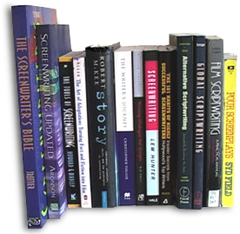
Leave a Reply